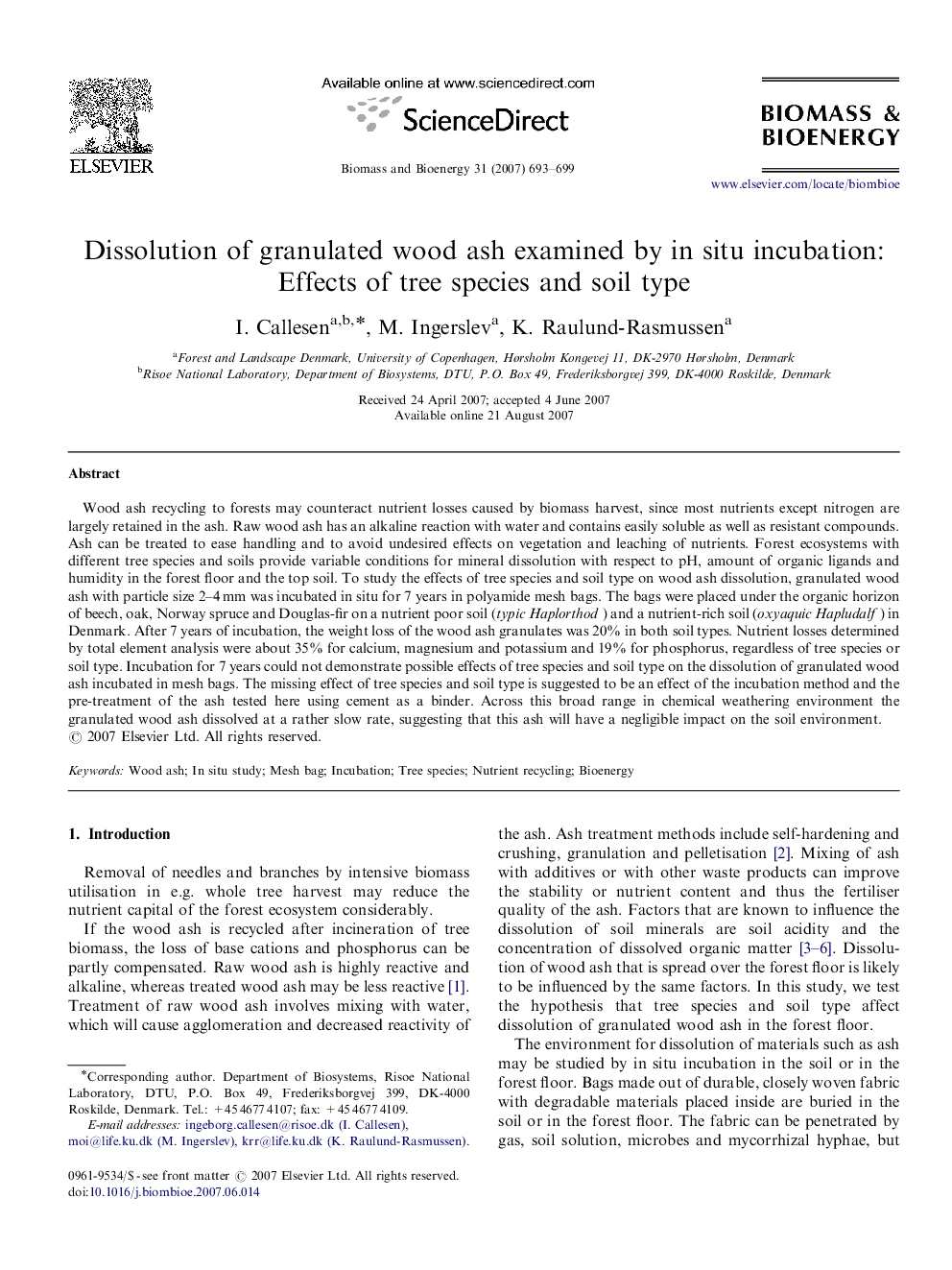| Article ID | Journal | Published Year | Pages | File Type |
|---|---|---|---|---|
| 678843 | Biomass and Bioenergy | 2007 | 7 Pages |
Wood ash recycling to forests may counteract nutrient losses caused by biomass harvest, since most nutrients except nitrogen are largely retained in the ash. Raw wood ash has an alkaline reaction with water and contains easily soluble as well as resistant compounds. Ash can be treated to ease handling and to avoid undesired effects on vegetation and leaching of nutrients. Forest ecosystems with different tree species and soils provide variable conditions for mineral dissolution with respect to pH, amount of organic ligands and humidity in the forest floor and the top soil. To study the effects of tree species and soil type on wood ash dissolution, granulated wood ash with particle size 2–4 mm was incubated in situ for 7 years in polyamide mesh bags. The bags were placed under the organic horizon of beech, oak, Norway spruce and Douglas-fir on a nutrient poor soil (typic Haplorthod) and a nutrient-rich soil (oxyaquic Hapludalf) in Denmark. After 7 years of incubation, the weight loss of the wood ash granulates was 20% in both soil types. Nutrient losses determined by total element analysis were about 35% for calcium, magnesium and potassium and 19% for phosphorus, regardless of tree species or soil type. Incubation for 7 years could not demonstrate possible effects of tree species and soil type on the dissolution of granulated wood ash incubated in mesh bags. The missing effect of tree species and soil type is suggested to be an effect of the incubation method and the pre-treatment of the ash tested here using cement as a binder. Across this broad range in chemical weathering environment the granulated wood ash dissolved at a rather slow rate, suggesting that this ash will have a negligible impact on the soil environment.
